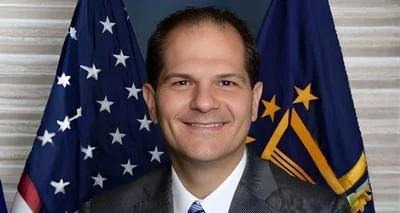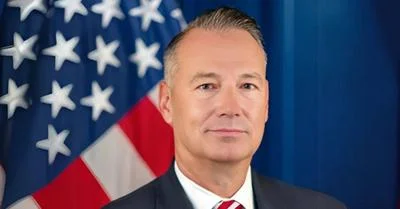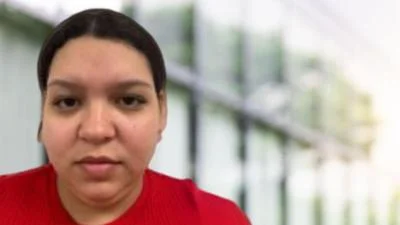University of Chicago Professor John Mearsheimer (L) and business school student Edita Kuberka | University of Chicago
University of Chicago Professor John Mearsheimer (L) and business school student Edita Kuberka | University of Chicago
A group of University of Chicago students are circulating a letter demanding the school force political science Professor John Mearsheimer to change his views on the Russia-Ukraine conflict.
The students call Mearsheimer's criticism of U.S. policy on Ukraine "Putinism" and asserts his views aren't his but rather result of money they claim he receives from Russian President Vladimir Putin.
"We believe one of the worthwhile causes in the fight against Putin's aggression is to identify and condemn those who are actively engaged in the spread of Putinism-- an ideology which is being used to justify aggression towards Ukraine," the letter says, demanding school president Paul Alivisatos condemn Mearsheimer and "remedy the problem" of his opinions.
Mearsheimer, 74, a self-described liberal Democrat who has taught at University of Chicago since 1982, has been a leading critic of U.S. activity in Ukraine for the last ten years.
In Fall 2014, he wrote “Why the Ukraine Crisis Is the West’s Fault: The Liberal Delusions That Provoked Putin,” published in the journal Foreign Affairs.
In Fall 2015, Mearsheimer gave a talk on the topic at University of Chicago at which he predicted the events of the past month.
"I actually think that what's going on here is that the West is leading Ukraine down the Primrose Path, and the end result is that Ukraine is going to get wrecked," he said. "And I believe that the policy I'm advocating, which his neutralizing Ukraine and then building it up economically, and then getting it out of the competition between Russia on one side and NATO on the other side, is the best thing that could happen to the Ukrainians."
"What we're doing is encouraging the Ukrainians to play tough with the Russians. We're encouraging the Ukrainians to think that they will ultimately become part of the West, because we will ultimately defeat Putin, and we will ultimately get our way. Time is on our side," Mearsheimer said. "And of course, the Ukrainians are playing along with this. The Ukrainians are almost completely unwilling to compromise with the Russians, and instead want to pursue a hardline policy."
"If they do that, the end result is that their country is going to be wrecked. And what we're doing is in effect encouraging that outcome. I think it would make much more sense for us to work to create a neutral Ukraine," he said. "It would be in our interest to bury this crisis as quickly as possible. It certainly would be in Russia's interest to do so. And most importantly, it would be in Ukraine's interest to put an end to the crisis."
Mearsheimer's 2015 speech, published on Youtube, had been viewed more than 16 million times as of Saturday.
On Mar. 3, Mearsheimer told the Committee for the Republic the current situation was a "disaster."
"Ukraine's economy is wrecked. Its cities are in the process of being wrecked," he said. "And we're driving the Russians into the arms of the Chinese, which makes no sense at all."
"The question of who caused it and who bears the blame really matters. The conventional wisdom in the United States... is that the Russians are responsible. I don't buy this argument at all. I haven't bought it for a long time," he said. "In my opinion, the West bears primary responsibility for what is happening today."
The letter's signatories include students Dayna Safarian, Edita Kuberka, Iryna Irkliyenko, Darya Kolesnichenko and Sergiy Kuchko.
Kuberka is a Ukraine native and longtime Amazon executive pursuing her MBA at University of Chicago's Booth School of Business.
University of Chicago has a published statement of commitment to free speech that protects opinions' like Mearsheimer's from attempts at censorship.
"Although members of the University community are free to criticize and contest the views expressed on campus... they may not obstruct or otherwise interfere with the freedom of others to express views they reject or even loathe. To this end, the University has a solemn responsibility not only to promote a lively and fearless freedom of debate and deliberation, but also to protect that freedom when others attempt to restrict it."
"Without a vibrant commitment to free and open inquiry, a university ceases to be a university,"






 Alerts Sign-up
Alerts Sign-up